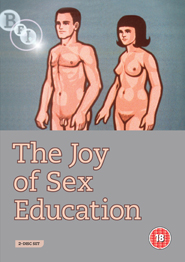The Joy of Sex Education
Dr Katherine Angel introduced a series of clips from sex education films from the 1930s to the 1970s.
Several of these films were funded by the British Social Hygiene Council. A Royal Commission on Venereal Diseases (1913-1916) had recommended sex education; government was reluctant, however, and didn't make its own Board of Education responsible but instead gave a grant to the voluntary National Council for Combating Venereal Diseases, which became British Social Hygiene Council. The grant was withdrawn in 1929, replaced by discretionary allotments from local authorities, though many refused to contribute. Provision therefore become sporadic.
These sex education films reflect a convergence of a particular phase of public health – addressing individuals about personal hygiene and personal responsibility in disease prevention – with the mass popularity of cinema as a dominant leisure pursuit. Films were often shown in town and church halls, institutes and schools, not cinemas – cinema managers resented the imposition of educational material into entertainment programmes. They were attempts to reach the general public whose behaviour was source of moral and eugenic concern for educated classes.
The films illustrate the extent to which sex education is also gender education: they convey and underline norms of gender behaviour, for example in their depiction of prostitutes or ‘easy women’, also revealing anxieties about the increasing independence of women. Moreover, they evince a powerful double standard - sexual license that was afforded to men wasn’t afforded to women. And many of the films emphasise the difference in sexual appetite and nature between men and women.
The films perform a difficult juggling-act: seeking to be clear and educational without being seen as condoning or encouraging early sexual activity or extramarital sexual activity. They are often ambiguous and even obfuscating in regard to whether one can tell if someone is likely to be carrying a sexually transmissible disease.
With titles such as Any Evening After Work, Love On Leave and The Mystery of Marriage, they tread a complex and sensitive terrain, combining frankness and coyness in a sometimes confusing blend. And they were not uncontroversial: Martin Cole's 1971 Growing Up provoked debate on a national scale, in part due to its representations of masturbation.

